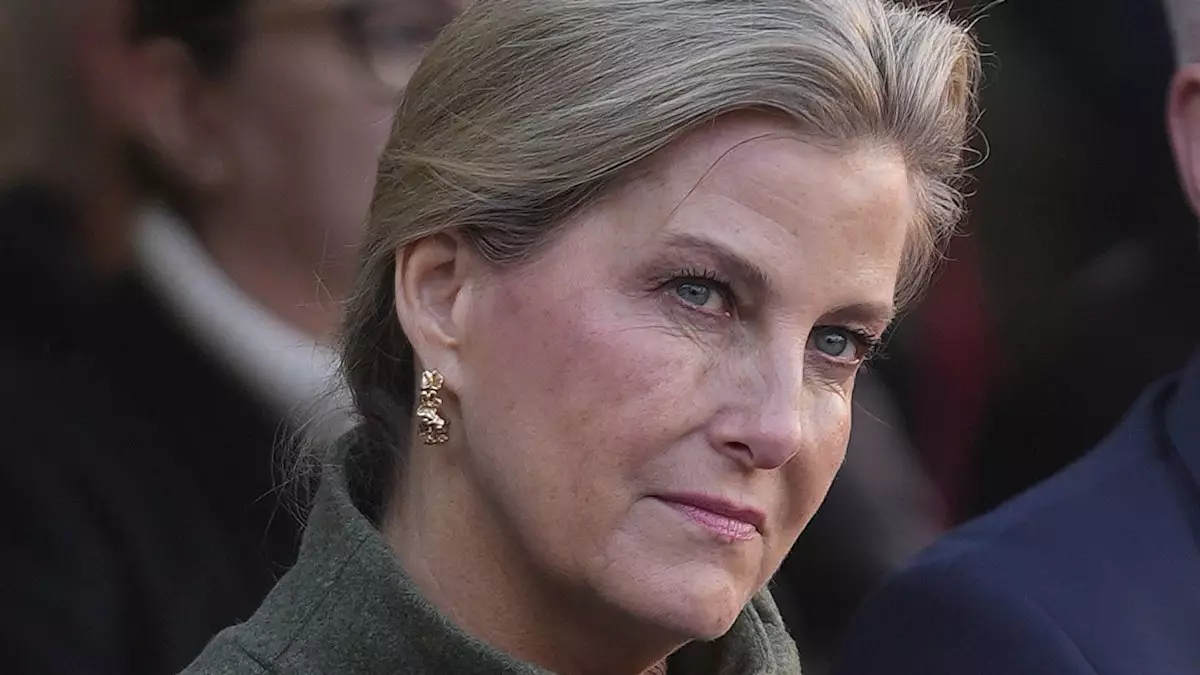The Duchess of Edinburgh, Sophie, has consistently demonstrated her deep compassion and commitment to humanitarian causes. Recently, she made headlines once again when she offered a heartfelt hug to Yazidi genocide survivor Awaz Abdi. This touching moment occurred during her visit to “The Women Who Beat Isis” photography exhibition at the Foreign Office in London. Sophie, whose empathetic nature is increasingly recognized, crafted an atmosphere of empathy as she engaged with Abdi, who poignantly recounted her traumatic experiences from a decade ago when she was just ten years old, kidnapped by the notorious Islamic State (IS) in Iraq.
The significance of Sophie’s gesture cannot be understated. In a world often marred by indifference, the royal’s willingness to embrace a survivor underscores the importance of personal connection and human compassion in alleviating the suffering of victims. This act served to not only comfort Abdi but also to draw attention to the broader implications of violence and trauma faced by those affected by atrocities.
Listening to Abdi share her ordeal revealed the staggering human cost of such tragedies. Her family endured unimaginable distress as they were separated for months before managing to reunite in Germany after a perilous escape to Kurdistan. While tears flowed during her narrative, it became clear that trauma is a persistent shadow in the lives of survivors like Abdi and her family.
Sophie’s response to Abdi highlights a crucial truth: genuine awareness and support are essential in addressing the aftermath of violence. The Duchess expressed her understanding of the lasting impact of these horrific experiences, stating, “Awaz and her family have lived with the ongoing aftermath and will do their entire lives.” This acknowledgment of lived experiences signifies a shift towards creating a dialogue on the resilience of those who survive amidst suffering.
Furthermore, Sophie’s remarks on violence as “the most singularly effective weapon” highlight the urgent need for action. She pointed to the lack of global efforts in both preventing violence and addressing its repercussions. Such statements resonate deeply in an age where awareness must translate into policy and tangible support. Sophie’s role in this narrative transcends mere sympathy; she embodies a call to action against gender-based violence and systemic injustices.
Her engagement in events such as the “Women Who Beat Isis” exhibition exemplifies her dedication to raising awareness about pressing social issues. Recognizing the immense challenges facing survivors, she has devoted herself to being an advocate for change, underscoring the necessity for collective societal change regarding gender-based violence.
Social media reactions to her compassionate actions reflect a broader appreciation for the Duchess’s endeavors. Many users commended her for her genuine care and unwavering commitment to important social issues. Comments like, “Duchess Sophie tells us all about love and freedom,” emphasize her role as a beacon of hope within the royal family. It is evident that many view her advocacy as not just royal duty but a personal mission.
Amidst a legacy of royal figures, Sophie stands out not only as a member of the monarchy but as a personification of kindness and awareness. The positive feedback surrounding her actions indicates a growing expectation for royals to engage meaningfully with humanitarian causes, breaking the mold of traditional royal responsibilities.
Sophie’s participation in the 16 Days of Activism against Gender-Based Violence underlines the urgency and importance of sustained advocacy efforts globally. As a champion for the UN’s Women, Peace and Security Agenda, she amplifies the voices of those often excluded from conversations surrounding gender violence. Her recent visit to Chad, where she emotionally connected with refugees impacted by sexual violence, further exemplifies her commitment to global humanitarian efforts.
The Duchess of Edinburgh serves as a profound example of how compassion can wield significant influence. Her interactions with survivors like Awaz Abdi do more than just provide comfort; they shine a light on the collective responsibility to respond to violence against vulnerable populations. As she continues her work in the realm of human rights, the Duchess inspires others to acknowledge, support, and take action against the atrocities that persist in our world today.

Leave a Reply